In order to generate a more inclusive dataset of Pseudomonas genes mapped to putative in-paralogs and putative orthologs in other Pseudomonas species/strains, we developed a Pseudomonas Orthologous Groups classification system.
To generate ortholog groups, pair-wise DIAMOND searches were run on all genomes in the database to find reciprocal best hits (RBHs) for each gene. These analyses often resulted in multiple candidate genes for RBH status, which were narrowed down by examining the similarity between the query's flanking genes and the hit's flanking genes. If two candidate genes were directly adjacent, they where both accepted as RBHs that involve putative in-parology.
Pairwise intra-genome DIAMOND searches were also performed to acquire in-paralog information (i.e. gene duplications occurring after species divergence). If two genes in one genome were reciprocally more similar to each other than to any gene in the other genomes, the two genes were designated putative in-paralogs. Ortholog groups are built by starting with a seed gene and then adding all genes to which there is a RBH or in-paralog relationship.
Every new gene added to an ortholog group was then treated as a seed gene and the addition process was repeated until all qualifying genes had been added. The result was the development of orthologous groups, specifically generated for Pseudomonas species genomes, which can be used to sort search results.
Pseudomonas Ortholog Group POG001507
| Strain | Locus Tag | Description | Same-Strain Members | Fragment ? | |
|---|---|---|---|---|---|
| Pseudomonas aeruginosa PAO1 (Stover et al., 2000) | PA3037 |
hypothetical protein
|
2 same-strain members: PA3037 PA4200 |
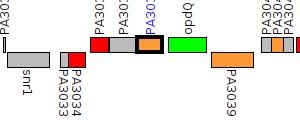
|
|
| Pseudomonas aeruginosa PAO1 (Stover et al., 2000) | PA4200 |
hypothetical protein
|
2 same-strain members: PA3037 PA4200 |
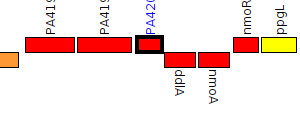
|
|
| Pseudomonas aeruginosa UCBPP-PA14 (Lee et al., 2006) | PA14_09610 |
hypothetical protein
|
2 same-strain members: PA14_09610 PA14_24810 |

|
|
| Pseudomonas aeruginosa UCBPP-PA14 (Lee et al., 2006) | PA14_24810 |
hypothetical protein
|
2 same-strain members: PA14_09610 PA14_24810 |
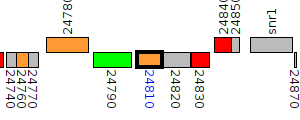
|
|
| Pseudomonas aeruginosa PA7 | PSPA7_0898 |
hypothetical protein
|
2 same-strain members: PSPA7_0898 PSPA7_2102 |
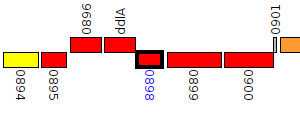
|
|
| Pseudomonas aeruginosa PA7 | PSPA7_2102 |
hypothetical protein
|
2 same-strain members: PSPA7_0898 PSPA7_2102 |
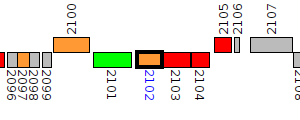
|
|
| Pseudomonas stutzeri A1501 | PST_2733 |
Zn-dependent hydrolase
|
2 same-strain members: PST_2733 PST_3889 |
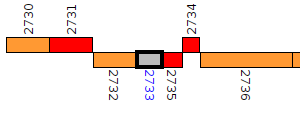
|
|
| Pseudomonas stutzeri A1501 | PST_3889 |
putative metallo-beta-lactamase
|
2 same-strain members: PST_2733 PST_3889 |
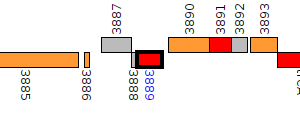
|
|
| Pseudomonas aeruginosa LESB58 | PALES_07271 |
hypothetical protein
|
2 same-strain members: PALES_07271 PALES_20231 |
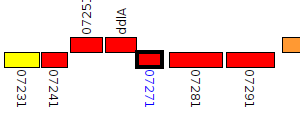
|
|
| Pseudomonas aeruginosa LESB58 | PALES_20231 |
putative hydrolase
|
2 same-strain members: PALES_07271 PALES_20231 |
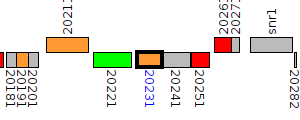
|
|
| Pseudomonas protegens Pf-5 | PFL_6134 |
metallo-beta-lactamase domain-containing protein
|
1 member |
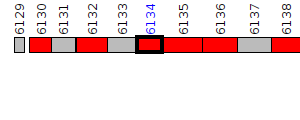
|
|
| Pseudomonas aeruginosa 19660 | Q010_00016 |
beta-lactamase
|
2 same-strain members: Q010_00016 Q010_01283 |
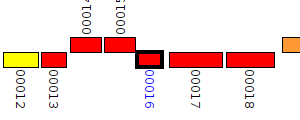
|
|
| Pseudomonas aeruginosa 19660 | Q010_01283 |
hypothetical protein
|
2 same-strain members: Q010_00016 Q010_01283 |
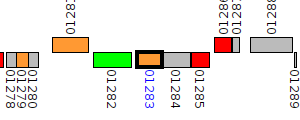
|
|
| Pseudomonas aeruginosa 19BR | IAI_RS0117645 |
hydrolase
|
2 same-strain members: IAI_RS0117645 IAI_RS0123780 |
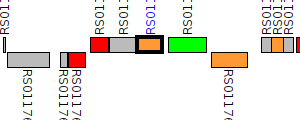
|
|
| Pseudomonas aeruginosa 19BR | IAI_RS0123780 |
beta-lactamase
|
2 same-strain members: IAI_RS0117645 IAI_RS0123780 |
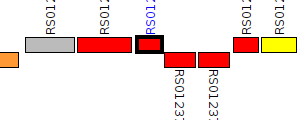
|
|
| Pseudomonas aeruginosa 213BR | IAK_RS0123640 |
beta-lactamase
|
2 same-strain members: IAK_RS0117770 IAK_RS0123640 |

|
|
| Pseudomonas aeruginosa 213BR | IAK_RS0117770 |
hydrolase
|
2 same-strain members: IAK_RS0117770 IAK_RS0123640 |
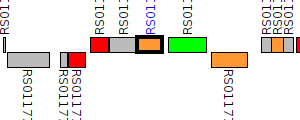
|
|
| Pseudomonas aeruginosa 2192 | PA2G_02451 |
hydrolase
|
2 same-strain members: PA2G_02451 PA2G_03651 |
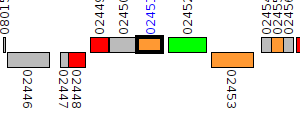
|
|
| Pseudomonas aeruginosa 2192 | PA2G_03651 |
beta-lactamase
|
2 same-strain members: PA2G_02451 PA2G_03651 |
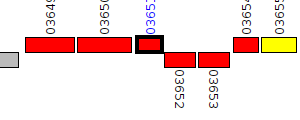
|
|
| Pseudomonas aeruginosa 3573 | AJ60_02525 |
hydrolase
|
2 same-strain members: AJ60_02525 AJ60_04890 |
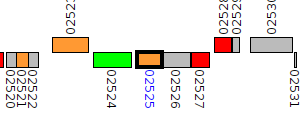
|